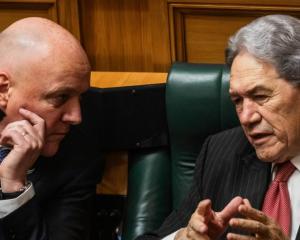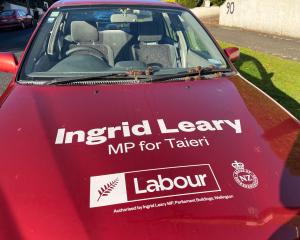Changes could be made to the Government's proposed election finance rules if political parties could agree on the them, Justice Minister Simon Power said today.
Mr Power yesterday released proposals to replace Labour's since-repealed Electoral Finance Act. National campaigned against the Act, labelling it anti-democratic.
Amongst other things, Labour's law limited groups outside political parties to spending $120,000 during election campaigns.
Under National's proposal there would be no limit, but those spending more than $12,000 would have to be named on a publicly available register.
The last government introduced the limit and stricter rules about disclosure after the Exclusive Brethren tried to run a covert campaign against Labour and the Greens.
In Parliament today, Green co-leader Metiria Turei questioned Mr Power over the lack of a limit saying it could lead to those with large amounts of money skewing elections.
Mr Power did not agree with the proposition, but said he was open to suggestions.
"On the matters of parallel campaigning, donations, and broadcasting I remain very interested in what the select committee comes up with," he said.
"If a broad consensus can emerge from that particular forum, which was not able to emerge on those issues from three, or maybe four, stages of consultation leading to this point, I would be very interested in hearing about it."
Mr Power said his main concern was to get electoral law that would endure and that registration of third parties without limits was balanced.
Ms Turei raised the prospect of big business getting involved in campaigns, but Mr Power said of the 25 groups and individuals who registered as parallel campaigners in 2008 many were far more diverse than that, and included 11 unions, the national students' association, and a group called "Vote for the Environment".
The Greens were concerned that political parties could fund outside groups to get around political party spending caps. Mr Power said this could be an area the select committee looked at.
The reform package included proposals to:
* Require disclosure of the total amount of donations that parties receive, in bands.
* Increase the amount of money that parties and candidates can spend on election campaigning at the rate of inflation for each general election.
* Require people who spend more than $12,000 on parallel campaigning to register with the Electoral Commission. The register will be publicly available.
* Maintain the regulated campaign period to be three months before polling day.
Mr Power said there would be no change to the broadcasting regime that has existed since 1990.
"Similarly, as was the case before the 2008 election, we will not impose expenditure limits on parallel campaigners. New Zealanders were strongly divided on these issues," Mr Power said.
"We will introduce legislation in the coming months implementing these decisions. We expect the new rules to be in place before the 2011 general election."
The amounts political parties can spend in the three months before an election is also to be increased by the rate of inflation from the next election.
Parties can spend $1 million plus $20,000 for each electorate they contest.
There had been proposals to allow the pool of state-allocated funds available to parties to broadcast advertisements to be spent newspapers or digital media, but Mr Power said there was no political consensus in this area.
There will also be modernised definition by the Electoral Commission of what counts as election advertising.
The donations regime has been left largely unchanged with anonymous donations limited to $1000 and immediate disclosure of any donation over $20,000.












